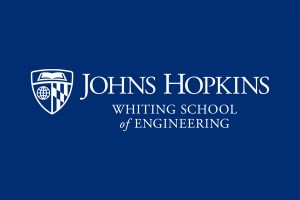
Michael Falk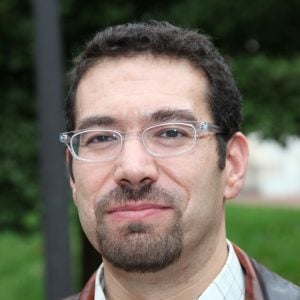 , vice dean of undergraduate education and professor of materials science and engineering, earned the 5 Sigma Physicist Honor from the American Physical Society, which recognizes “APS members who perform outstanding volunteer advocacy work to help advance APS’s science policy priorities.” He received this award because he “co-authored the 2015 LGBT Climate in Physics report, which supported APS advocacy on the LGBTQI+ Data Inclusion Act.”
, vice dean of undergraduate education and professor of materials science and engineering, earned the 5 Sigma Physicist Honor from the American Physical Society, which recognizes “APS members who perform outstanding volunteer advocacy work to help advance APS’s science policy priorities.” He received this award because he “co-authored the 2015 LGBT Climate in Physics report, which supported APS advocacy on the LGBTQI+ Data Inclusion Act.”
 Paul Ferraro, the Bloomberg Distinguished Professor of Human Behavior and Public Policy, was named a Fellow of the Association of Environmental and Resource Economists, which is presented to “individuals who have made outstanding contributions to the advancement of the profession of environmental and resource economics.” On social media, AERE recognized “the depth and breadth of Paul’s research, vast knowledge across various fields, always inquisitive nature, and valuable mentorship.”
Paul Ferraro, the Bloomberg Distinguished Professor of Human Behavior and Public Policy, was named a Fellow of the Association of Environmental and Resource Economists, which is presented to “individuals who have made outstanding contributions to the advancement of the profession of environmental and resource economics.” On social media, AERE recognized “the depth and breadth of Paul’s research, vast knowledge across various fields, always inquisitive nature, and valuable mentorship.”
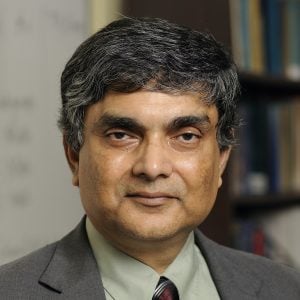 Somnath Ghosh, Michael G. Callas Chair Professor in the Department of Civil and Systems Engineering, was honored with the 2024 J.N. Reddy Medal for Mechanics of Advanced Materials and Structures, which recognizes “distinguished contributions to the field of mechanics of advanced materials and structures.” He received this award for “outstanding contributions to the field of multiscale-multiphysics computational mechanics and materials with significant industrial impact and multidisciplinary professional leadership.”
Somnath Ghosh, Michael G. Callas Chair Professor in the Department of Civil and Systems Engineering, was honored with the 2024 J.N. Reddy Medal for Mechanics of Advanced Materials and Structures, which recognizes “distinguished contributions to the field of mechanics of advanced materials and structures.” He received this award for “outstanding contributions to the field of multiscale-multiphysics computational mechanics and materials with significant industrial impact and multidisciplinary professional leadership.”
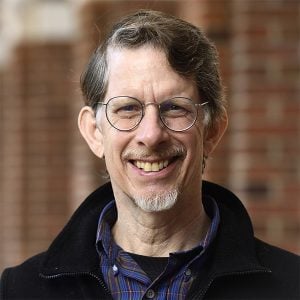 Benjamin Hobbs, the Theodore M. and Kay W. Schad Professor of Environmental Management, received the Lifetime Achievement Award from the Energy Systems Integration Group. This award recognizes “energy professionals from around the world for their contributions and accomplishments in the planning and operation of energy systems across multiple pathways and geographical scales in ways that are reliable, economic, and sustainable.”
Benjamin Hobbs, the Theodore M. and Kay W. Schad Professor of Environmental Management, received the Lifetime Achievement Award from the Energy Systems Integration Group. This award recognizes “energy professionals from around the world for their contributions and accomplishments in the planning and operation of energy systems across multiple pathways and geographical scales in ways that are reliable, economic, and sustainable.”
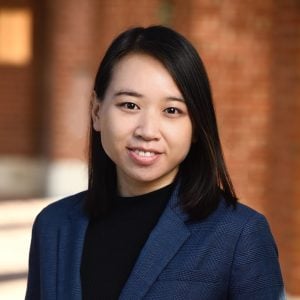 Anqi Liu, assistant professor in the Department of Computer Science, received an Amazon Research Award in the Amazon Web Services AI category for her proposal, “(Multi-) Calibrated Active Learning Under Subpopulation Shift.” This award provides “unrestricted funds to academic researchers investigating various research topics in multiple disciplines” and will support Liu’s work on the responsible deployment of AI technologies.
Anqi Liu, assistant professor in the Department of Computer Science, received an Amazon Research Award in the Amazon Web Services AI category for her proposal, “(Multi-) Calibrated Active Learning Under Subpopulation Shift.” This award provides “unrestricted funds to academic researchers investigating various research topics in multiple disciplines” and will support Liu’s work on the responsible deployment of AI technologies.
 Eric Nalisnick, an assistant professor of computer science, has been named a recipient of Google Research’s Award for inclusion research for his proposal, “Adaptive, Efficient Collection of Sign Language Data.” This award “recognizes and supports academic research in computing and technology that addresses the needs of historically marginalized groups globally” and will support Nalisnick’s research using active learning to address the scarcity of sign language data.
Eric Nalisnick, an assistant professor of computer science, has been named a recipient of Google Research’s Award for inclusion research for his proposal, “Adaptive, Efficient Collection of Sign Language Data.” This award “recognizes and supports academic research in computing and technology that addresses the needs of historically marginalized groups globally” and will support Nalisnick’s research using active learning to address the scarcity of sign language data.
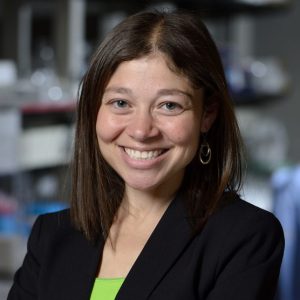 Jamie Spangler, the William R. Brody Faculty Scholar and an assistant professor of biomedical engineering and chemical and biomolecular engineering and the director of the Spangler Lab at the Johns Hopkins School of Medicine, received a Melanoma Research Alliance Pilot Award for her work titled “Immunotherapeutic cytokine/antibody fusion protein to treat acral melanoma.” This award provides “early support for conceptually novel, exploratory, high-risk and high-impact projects with the potential to change the face of melanoma research and treatments.
Jamie Spangler, the William R. Brody Faculty Scholar and an assistant professor of biomedical engineering and chemical and biomolecular engineering and the director of the Spangler Lab at the Johns Hopkins School of Medicine, received a Melanoma Research Alliance Pilot Award for her work titled “Immunotherapeutic cytokine/antibody fusion protein to treat acral melanoma.” This award provides “early support for conceptually novel, exploratory, high-risk and high-impact projects with the potential to change the face of melanoma research and treatments.
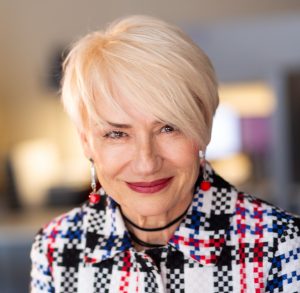 Natalia Trayanova, the Murray B. Sachs Professor in the Department of Biomedical Engineering and a professor of medicine at the Johns Hopkins School of Medicine, was named a Fellow of the International Union of Physiological Sciences, which is presented to those “who have made exceptional contributions to physiological sciences.” This can be in the form of significant original discovery, sustained excellent contributions to scholarship, or (exceptionally) those who in other ways have rendered a conspicuous service to physiology.
Natalia Trayanova, the Murray B. Sachs Professor in the Department of Biomedical Engineering and a professor of medicine at the Johns Hopkins School of Medicine, was named a Fellow of the International Union of Physiological Sciences, which is presented to those “who have made exceptional contributions to physiological sciences.” This can be in the form of significant original discovery, sustained excellent contributions to scholarship, or (exceptionally) those who in other ways have rendered a conspicuous service to physiology.